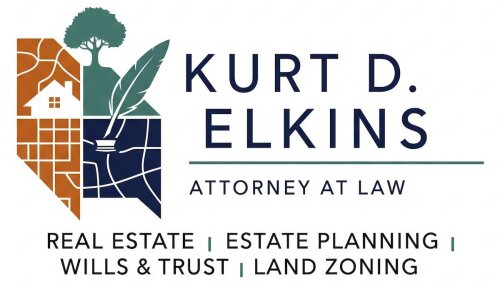Best Commercial Real Estate Lawyers in Texas
Share your needs with us, get contacted by law firms.
Free. Takes 2 min.
Free Guide to Hiring a Real Estate Lawyer
Or refine your search by selecting a city:
List of the best lawyers in Texas, United States
About Commercial Real Estate Law in Texas, United States
Commercial real estate law in Texas encompasses a broad range of legal issues surrounding property intended for business use. This includes buying, selling, leasing, developing, and managing properties used for offices, warehouses, retail spaces, apartments, hotels, and industrial facilities. Texas is known for its dynamic and growing commercial property market, shaped by both state and local regulations, as well as unique economic and cultural factors that influence transactions and property management. Navigating commercial real estate in Texas often demands a working knowledge of property law, contract law, land use, zoning, and environmental regulations, making legal guidance important for both experienced professionals and newcomers.
Why You May Need a Lawyer
Commercial real estate transactions involve intricate legal documents and significant financial stakes. Here are some common situations where legal assistance may be necessary:
- Drafting, reviewing, or negotiating commercial leases or purchase agreements
- Performing due diligence, such as title searches and environmental assessments
- Handling disputes between buyers, sellers, landlords, or tenants
- Ensuring compliance with zoning, land use, and building regulations
- Managing title issues or defects
- Counseling during property development or redevelopment
- Structuring financing arrangements or loan agreements
- Navigating foreclosure or property tax matters
An experienced lawyer can protect your interests, prevent costly mistakes, and offer guidance on maximizing the value of your commercial property investments.
Local Laws Overview
Texas commercial real estate law is influenced by state statutes, municipal ordinances, and established case law. Key legal aspects to be aware of include:
- Homestead Laws - Texas provides robust homestead protections, but commercial properties are generally not covered. Owners should understand how these laws interact with property rights.
- Zoning and Land Use - Local governments in Texas control how land can be used through zoning regulations. Changes or variances may require hearings or permits.
- Foreclosure Process - Texas follows a non-judicial foreclosure process for deeds of trust, which can move quickly compared to other states. Understanding the timeline and procedures is crucial for borrowers and lenders.
- Environmental Regulations - Federal and state regulations may require environmental assessments, especially if the property has a history of industrial use. Liability can attach to current and past owners.
- Deeds and Title Transfers - Texas recognizes several types of deeds, and title insurance is important to protect against future claims.
- Lease Agreements - Commercial leases in Texas are largely governed by the terms agreed upon by the parties, but there are some statutory requirements and consumer protection considerations.
- Brokerage Laws - Real estate agents and brokers must be licensed and comply with specific regulations overseen by the Texas Real Estate Commission.
Frequently Asked Questions
What is considered commercial real estate in Texas?
Commercial real estate in Texas includes properties used for business purposes rather than residential living. Typical examples are office buildings, retail centers, warehouses, shopping malls, industrial property, and land with planned commercial developments.
How is a commercial lease different from a residential lease?
Commercial leases often have fewer legal protections for tenants compared to residential leases and can be more complex. They are usually customized, cover longer terms, and involve factors like rent increases, maintenance responsibilities, and tenant improvements.
What steps should I take when buying commercial property in Texas?
The primary steps include conducting due diligence, obtaining title insurance, reviewing zoning restrictions, evaluating environmental risks, and negotiating the purchase agreement. It is highly recommended to involve a real estate attorney early in the process.
How can I find out if a property is zoned for my intended use?
Check with the local municipality's planning or zoning department. They can provide zoning maps and clarify any restrictions or requirements for your intended use of the property.
What is due diligence in a commercial real estate transaction?
Due diligence involves thoroughly investigating the property before finalizing a purchase. This can include reviewing title records, surveying the property, verifying zoning compliance, checking for environmental liabilities, and inspecting the physical condition of the buildings.
Do I need a lawyer for a commercial lease agreement?
While not legally required, having a lawyer review or negotiate a commercial lease can help you understand your obligations, avoid unfavorable terms, and protect your business interests.
Are there special environmental regulations for commercial properties in Texas?
Yes. State and federal agencies may require environmental assessments, especially for properties with prior industrial uses. Liability for contamination can extend to current owners regardless of who caused the issue.
What is a title search, and why is it important?
A title search reviews the public records for claims or issues with a property’s ownership, such as liens, judgments, or easements. It is essential to ensure you receive clear and marketable title when purchasing commercial real estate.
How are disputes over commercial properties usually resolved?
Disputes may be settled through negotiation, mediation, arbitration, or litigation. The process will often depend on the terms in the contract or lease agreement.
How does the Texas foreclosure process work for commercial properties?
Most commercial properties in Texas are foreclosed through a non-judicial process. After a default, the lender can conduct a trustee sale on the first Tuesday of the month following required notice periods, allowing for a relatively fast resolution.
Additional Resources
Several governmental agencies and organizations provide support and information related to commercial real estate in Texas:
- Texas Real Estate Commission (TREC) - Licensing and regulation of brokers and agents
- Texas Department of Licensing and Regulation - Information on construction and development licensing
- Local municipal planning and zoning departments - Zoning maps and land use requirements
- Texas General Land Office - State property information and regulations
- County clerk or recorder's office - Access to property records and deeds
- Environmental Protection Agency - Guidelines for environmental assessments
- Texas Bar Association - Find qualified real estate lawyers
Next Steps
If you need legal assistance in commercial real estate, consider the following steps:
- Identify your specific legal needs, such as contract review, dispute resolution, or property acquisition
- Gather all relevant documentation, including contracts, property records, and correspondence
- Contact a Texas real estate attorney who has experience in commercial transactions
- Schedule a consultation to discuss your situation and obtain preliminary legal advice
- Stay informed by researching the local regulations and keeping communication open with all parties involved in your transaction
Early legal guidance can save significant time and money by identifying potential challenges and helping you make well-informed decisions throughout your commercial real estate venture in Texas.
Lawzana helps you find the best lawyers and law firms in Texas through a curated and pre-screened list of qualified legal professionals. Our platform offers rankings and detailed profiles of attorneys and law firms, allowing you to compare based on practice areas, including Commercial Real Estate, experience, and client feedback.
Each profile includes a description of the firm's areas of practice, client reviews, team members and partners, year of establishment, spoken languages, office locations, contact information, social media presence, and any published articles or resources. Most firms on our platform speak English and are experienced in both local and international legal matters.
Get a quote from top-rated law firms in Texas, United States — quickly, securely, and without unnecessary hassle.
Disclaimer:
The information provided on this page is for general informational purposes only and does not constitute legal advice. While we strive to ensure the accuracy and relevance of the content, legal information may change over time, and interpretations of the law can vary. You should always consult with a qualified legal professional for advice specific to your situation.
We disclaim all liability for actions taken or not taken based on the content of this page. If you believe any information is incorrect or outdated, please contact us, and we will review and update it where appropriate.
Browse commercial real estate law firms by city in Texas
Refine your search by selecting a city.














